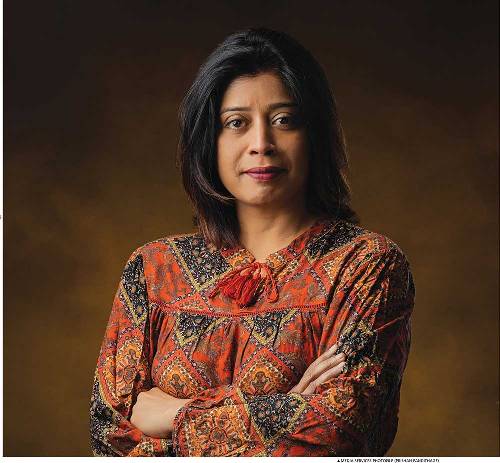PUTTALAM, 22 March 2010 (IRIN) – Resettlement efforts are under way for thousands of displaced Muslims from Sri Lanka’s north who have been languishing in refugee camps for nearly two decades, officials say.
The internally displaced people (IDPs) were forcibly evicted in October 1990 from the northern districts of Jaffna, Mannar, Kilinochchi, Mullaithivu and some parts of Vavuniya by the insurgent Liberation Tigers of Tamil Eelam (LTTE).

About 75,000 Muslims are estimated to have fled, making their way towards government-controlled areas in Vavuniya and Anuradhapura, as well as to Puttalam District on the northwestern coast, according to the International Crisis Group (ICG).
The Minister of Resettlement and Disaster Relief Services, Rishad Bathiudeen, announced in December 2009 that the government would start resettling more than 100,000 Muslim IDPs in camps in Puttalam to their places of origin.
“We are currently carrying out a survey for resettlement,” Bathiudeen told IRIN, noting that resettlement areas still had to be cleared of mines from the conflict.
“Once the demining is completed we will resettle them in their places of origin,” he said.
Overlooked
The minority Muslim community comprises about 8 percent of Sri Lanka’s population of 20.2 million, according to the Department of Census and Statistics.
Rights groups say their plight of the Muslim IDPs has been largely ignored throughout most of the conflict.
While international attention has focused recently on the thousands of ethnic Tamil IDPs displaced near the end of Sri Lanka’s 26-year conflict, analysts and aid workers have expressed concern that the Muslim IDPs will continue to be overlooked.
“While we recognize the urgency for the resettlement of the IDPs, northern Muslims are worried that there is hardly any acknowledgment of their existence and needs, and they are left out of any planning of the entire resettlement process,” said Shreen Saroor, a Muslim IDP and activist.

In a January 2010 report, the ICG urged the international community to consider the Muslim IDPs’ right to return to their land. It also called on the government to clarify plans for the return and resettlement of the IDPs.
“Their right of return should be clearly established, while also recognizing that some may not want to leave their current homes and should not be forced,” it said.
Stay or go?
While some of the IDPs have constructed houses and others have been living with host families, most are still in the camps, where conditions are basic, although there is access to clean water and sanitation.
Many of the IDPs were fishermen, farmers or butchers before fleeing but they now mostly work as labourers or masons.
But even with the prospect of resettlement, the decision to return home for Muslim IDPs – after 20 years in Puttalam – is not clear-cut.
At the Saltern Internal Displacement Camp in Puttalam, some IDPs said they had visited their ancestral homes in Jaffna, Mannar and the north of Vavuniya. They found their houses had been destroyed and their belongings looted.
“I was born and lived in Jaffna. I owned a beef stall there. I was very happy and healthy, but now I am sick and sad,” Mohamed Yusuf told IRIN.
“Nevertheless, I want to go back to Jaffna and live. But I am not sure whether it will happen before I die,” he said.
While some said they had adapted to life in Puttalam, many said they were willing to go back if the authorities provided them with basic needs such as a house.
“I have worked in Saudi Arabia for 10 years as a housemaid, and managed to build three houses in Jaffna, but all of them were destroyed,” said Najeefa Mohamed Hussain.
“I want to build at least one house in Jaffna, but I am not financially able to make it a reality,” she said.
IRIN (Integrated Regional Information Networks) is part of the UN Office for the Coordination of Humanitarian Affairs, but its services are editorially independent.
source http://transcurrents.com
Post Disclaimer | Support Us
Support Us
The sailanmuslim.com web site entirely supported by individual donors and well wishers. If you regularly visit this site and wish to show your appreciation, or if you wish to see further development of sailanmuslim.com, please donate us
IMPORTANT : All content hosted on sailanmuslim.com is solely for non-commercial purposes and with the permission of original copyright holders. Any other use of the hosted content, such as for financial gain, requires express approval from the copyright owners.
 Sri lanka Muslims Web Portal Sri Lanka Muslims News Center
Sri lanka Muslims Web Portal Sri Lanka Muslims News Center
 Donate
Donate



It is sad that the people with authority and connections have overlooked the poor living conditions and below human standard status of the refugees. This is very sad, specially in living conditions related to the Jaffna Muslim Refugees housed in Crow Island, Colombo. There are 127 families consisting of about 450 people sharing 11 toilets and one bathing facility. Is this acceptable to any human being? Please do something before it worsen.